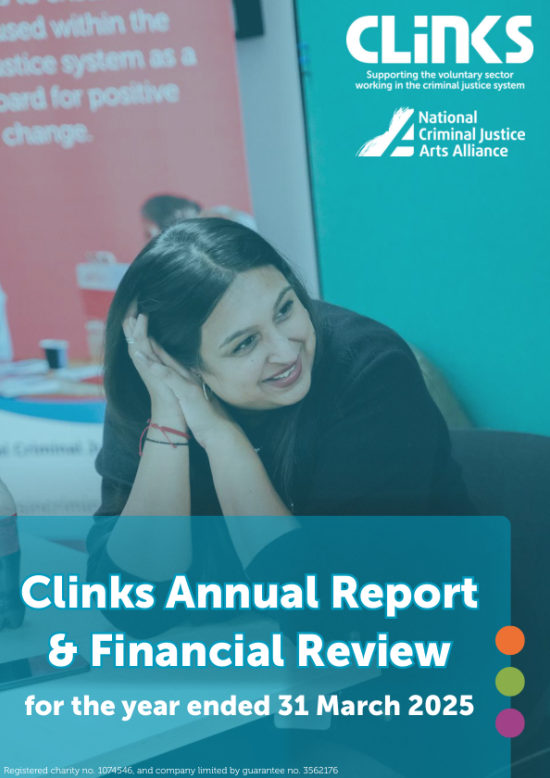While organisations try to adapt to the new environment created by Covid-19 and provide the additional support that staff and volunteers need at this time, there is still much uncertainty around how long restrictions will prevent them from doing their work, their financial stability and the long term implications of the pandemic.
Clinks is conducting a bi-weekly survey of the voluntary sector in criminal justice to track the evolving impact of Covid-19 on organisations. The data gathered through these surveys is provided to senior officials at the Ministry of Justice as well as funders and government select committees. Read the full briefing here.
Please take just 10 minutes to complete our next survey so that we can ensure we are representing your needs and experiences to those important decision-makers.
What we know so far
Our latest survey had 119 usable responses. This blog will outline some of its key findings. See here for the findings of our previous survey.
The challenges of delivering services remotely
Organisations are embracing remote ways of working, turning to telephone and video conference to keep in contact with those they support (51%), running telephone advice lines (38%) providing virtual group sessions (28%) and sending resource packs to people in prison (33%).
But there is a limit to how much services can be translated into remote working. Despite the flexibility of the sector and the adaptations organisations have made, 61% say that their service provision has decreased and unfortunately a further 18% have had to stop services completely.
Almost a fifth of the organisations that took our survey told us that their primary area of activity includes providing arts-based provision. A higher percentage of those organisations told us that they are providing resource packs to people in prison and are delivering virtual group sessions.
Arts organisations are clearly responding innovatively to the pandemic and their creative resources and initiatives can be a lifeline to people isolated. But arts organisations also face distinct barriers in adapting services for remote delivery which are often designed to be highly interactive. We know from the National Criminal Justice Arts Alliance (NCJAA)’s engagement with the arts sector, that there has been concern amongst organisations that work in prisons about the effectiveness of remote alternatives, and how to meaningfully replace their services and workshops with digital resources.
Losing the vital support of volunteers
Many voluntary organisations rely on volunteers. Our state of the sector research has shown that in the criminal justice voluntary sector there are 20 volunteers for every nine members of staff. Volunteers provide a range of important activities for organisations from mentoring and befriending, to providing advice or counselling, to leading groups or training.
Though parts of the wider voluntary sector are seeing a drive in volunteering, this does not appear to be the case for the sector working in criminal justice. 44% say the number of volunteers supporting their organisation has decreased since the Covid-19 pandemic. This may have a significant impact on some organisations’ capacity to deliver their services.
The need for financial support
The Covid-19 pandemic is impacting organisations' income generation. 70% of the respondents who indicated that their organisation has a social enterprise element or trading arm, said this element is no longer able to operate. This could leave those organisations facing a shortfall in funding.
“Our capacity to fund raise and sell our products is severely curtailed and it is difficult to apply for long term funding from trusts in this period of uncertainty” – survey respondent
40% of respondents say they have had to use their reserves due to the Covid-19 pandemic. This gives us cause for concern because organisations in our sector typically have far lower level of reserves than the wider UK voluntary sector, leaving them in a more vulnerable position. Without financial support, some of those organisations will struggle to survive the longer lockdown continues.
Given this, it is important that organisations under financial pressure because of the pandemic are able to access the support available from the government. Yet organisations are not confident that they have a full understanding of the support available and continue to report eligibility criteria as the largest barrier to applying for it (39%).
In particular, we continue to find that use of the job retention scheme, which enables organisations to furlough staff, remains low. 40% of organisations say they have not furloughed any of their staff and 37% of organisations have furloughed less than half of their staff. Organisations continue to say they are not sure (38%) whether they should make more use of the scheme. We know that there are restrictions around furlough preventing voluntary sector organisations from using this option. There is particular difficulty with regard to eligibility where organisations receive statutory funding for staff costs.
“our trainers are on a government contract and cannot be furloughed” – survey respondent
We have also noticed that a higher proportion of organisations providing arts-based provision say they are ineligible for the job retention scheme and other government financial support. This is especially concerning when added to the fact that a higher proportion of those organisations also say they are anticipating cash flow problems in the next six months when compared to the criminal justice voluntary sector responses as a whole.
Making decisions around financial support is not easy with such little clarity about how long lockdown measures will continue for. While organisations grapple with decisions around furlough and other support packages, we will look more closely at how we can support organisations facing financial difficulty to get the support they need.
What next?
The impact on organisations will continue to develop over the coming months. To help us monitor how the voluntary sector in criminal justice is faring during this time and support you, please continue to take our survey here. This time we will be exploring in more detail the impact of Covid-19 on the people you support and emergency funding.
The more responses we can continue to get, the better we can advocate for the needs of the sector. The next deadline is 15th May 2020.
What's new
Blogs
Anne Fox CEO of Clinks to stand down after a decade of service
Latest on X
The role is for a leader from an organisation focused on racially minoritised people, with expertise in service delivery, policy, advocacy, or related areas in criminal justice. Racial disparities are present at every CJS stage. This role ensures these voices are central in shaping policy to help address and eradicate them. Apply by Mon 18 Nov, 10am. More info: https://www.clinks.org/voluntary-community-sector/vacancies/15566 #CriminalJustice #RR3 #RacialEquity

